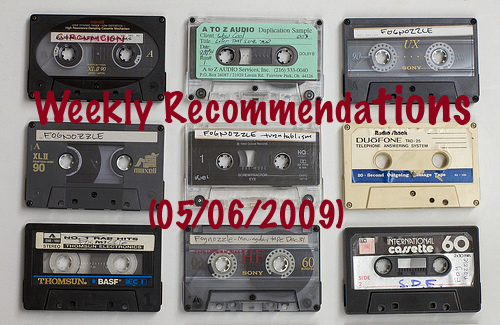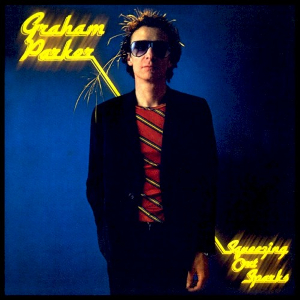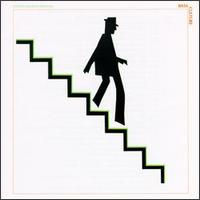

The Wrens – The Meadowlands
[Absolutely Kosher; 2003]
“It’s been so long since you’ve heard from me” croons bassist Kevin Whelan on album opener “The House That Guilt Built”. One can’t help but think that he’s talking directly to the listener rather than to an old friend. 2003’s The Meadowlands was released a staggering seven years after their previous (and also brilliant) release entitled Secaucus.
In those seven years in between releases, The Wrens were in limbo but continued to write music , while maintaining their day jobs. In that time the band matured immensely and had their fair share of personal struggles which are reflected in the lyrics throughout the entire album. It is that level of maturity displayed through intimate subject matter that allows The Meadowlands to surpass the critically acclaimed Secaucus. Simply put, these guys, in their late thirties and forties, have managed to craft an indie-rock masterpiece
It seems that time has treated The Wrens like a fine wine. That alone makes it easier to accept that we might not see a new Wrens release until 2010, if not later.
-Evan Kaloudis
Official site | Stream on Lala

Graham Parker & The Rumour – Squeezing Out Sparks
[Arista; 1979]
Squeezing Out Sparks is Graham Parker’s fourth studio album. Its mix of new wave and pub rock should have been perfect for 1979. Elvis Costello had released This Year’s Model the year before and the albums share a lot of the same references and have similar sound, but while Elvis Costello became a star and This Year’s Model has gone down as a classic, Graham Parker in many ways has been forgotten. Squeezing Out The Sparks was his last shot at success and while it did well, he never became the star he should have been, and pretty much became a cult figure instead. Musically, it’s relatively simple new wave-ish pub rock, not too dissimilar from Elvis Costello’s work, and it’s overflowing with memorable melodies and hooks. Parker was often characterized as an “angry young man” in the vein of Dylan, Elvis Costello and the like; the reason for that is obvious on this album. Beneath its poppy surface Parker’s anger and sardonic lyrics lift the album to a whole other level. There’s not a bad song on the album, but some songs are better than others. Highlights include the ballad “Can’t Be Too Strong” and the rocker “Local Girls”.
-Johan Alm
Official site | Stream on Lala

Mogwai – Come On Die Young
[Matador; 1999]
Mogwai, themselves, have called Come On Die Young their best album, and really it is hard for me to disagree with them. Many people seem to have missed the point with this album (not naming any names). Come On Die Young is meant to be listened to in full, start to finish, alone and preferable on a stormy night where the only interruption can come from the rain beating down on your roof and an occasional clap of thunder. Critics complained about the songs going nowhere and not utilizing the soft/loud dynamics that were so present on Young Team, but this record takes what Young Team did on each individual song and applied it to the entire album, making it a more cohesive work. If this is put on as background music while socializing with your friends it probably will come off as repetitive background music that really doesn’t go anywhere. But if you give it the attention it needs (and deserves) you will find just how intricate and brilliant Come On Die Young is.
Each track is subtly different from the one before it building up a little more than the previous one did. Once you get to “May Nothing But Happiness…” it seems like the album is finally going to explode but this one fizzles out just when you think it is about to take off. This basically leads into the climax of the album, which spans the last three songs, each averaging around ten minutes per song (which is around the length of the first eight tracks combined). “Ex-Cowboy” starts like many of the other songs and the listener expects it to takes its time before finally fading out, but within the first two and a half minutes the song unexpectedly explodes. After calming down into a lull, it explodes a second time with an even more violent climax than before, and then finally fades into “Chocky”. “Chocky” starts out as just feedback, which gives way to a piano line. Finally the piano is joined by the rest of the instruments for a little bit before the instruments fade. But just as you get the idea that this is just a ten minute lull, breaking the anticipation that “Ex-Cowboy created”, without warning the final thirty seconds (of the nine plus minute song) erupts into a violent wall of noise that is reminiscent of a space shuttle launch, which then cuts out abruptly at the end of the song leading into one of Mogwai’s finest hours, “Christmas Steps”. This song is a perfect representation of the album as a whole, starting out with a cold and mellow repetitive single guitar line. But every few bars another instrument is added in with mathematical precision, each signaling a subtly small change in the song. Finally a pounding bass line starts and the song takes of with a crushing guitar riff followed by all three guitarist stomping on their pedals and joining in. But then just as soon as this grand climax starts it reaches its end, starting the reveres process of how the song began, with each instrument going through and undoing what it had done in this song before it finally stops just as it started, closing out into the outro of the album, “Punk Rock/Puff Daddy/Antichrist”. The outro is fittingly a reversal of the intro (Punk Rock with an excerpt of an Iggy Pop interview playing in the back ground) played backwards, and you are left just as you started.
The brilliance in this album is not the eardrum damaging, soft/loud crescendos that where present in most of Young Team but the small but very intricate subtleties that line ever song on the album. It is truly a completely cohesive musical piece and if you give Come On Die Young the attention that it deserves (ie. not playing it while driving to Chipotle on a sunny day with four of your friends), hopefully you will see just how much this album has to offer.
– Austin Nauert
Official site | Stream on Lala

Linton Kwesi Johnson – Bass Culture
[Island; 1980]
Sometimes dark, sometimes humorous, always political – Linton Kwesi Johnson is the king of the dub poets. On paper, his poetry is still fantastic, but for the true experience you need the man himself angrily, but slickly, propagating his verse to you vocally. The backing from the excellent Denis Bovell sets a perfect reggae vibe for Linton to lay down his words, and at the same time is so strong that the music stands up by itself as a work of great craftsmanship – the fact that it manages to duck and weave around Linton’s ominous voice is a bonus. Bass Culture is the least talked about of Linton’s studio albums, but perhaps this body of work is more effective at covering a wider base of isses than the other two – “Loraine” sees Linton addressing love, but his political fury is still present in such songs as “Reggae fi Peach”, a tribute to Blair Peach, an innocent protester killed by the police, and “Inglan Is a Bitch” where he examines life an an immigrant in typical Linton fashion.
-Ben Diamond
Editor’s Note: the player below is a compilation of Linton Kwesi Johnson tracks, not Bass Culture
Gorillaz – Demon Days
[Virgin; 2005]
While Albarn and Co. showed promise with their debut album Gorillaz, Demon Days shows the group return with a much more mature sound. Part of that is due to producer Danger Mouse, who comes on board with his signature sounds. The album starts off eerie enough with the song “Last Living Souls”, on which lead singer Albarn sings as if he literally is the last one on the planet. Demon Days succeeds in that it is never tied down to one sound or idea. One minute there is a song that sounds sterile with beats, the next they have a choir singing a sweeping chorus. The album is quite imaginative, and really showed a band at their peak. I also highly recommend you check out the Demon Days – Live DVD, which has some stunning renditions of the songs.
– Brent Koepp
Official site | Stream on Lala

Bruce Springsteen – The Wild, the Innocent & the E Street Shuffle
[Columbia; 1973]
Although it was released the same year asGreetings From Asbury Park, New Jersey, this album sounds so different when stacked up against its predecessor. A much cleaner with more wide ranged production, The Wild, The Innocent, and the E Street Shuffle is a dramatic collection of stories of the Jersey Shore, and on some songs, New York City.
Side 1 seems more of the fun songs, with the insane “The E Street Shuffle” kicking things off in a more calmed down version of “Blinded by the Light”, reinvented with its own dance. “Kitty’s Back” is the first of 4 epics, with it’s bluesy riffs and jazzy undertones, and live, dramatic improvisation. Side two might be one of the most epic trilogies ever, beginning with the tale of “Spanish Johnny” in the form of “Incident on 57th Street”, which is well up there among Springsteen’s best songs. “Rosalita” would go on to become a concert staple, but the finale, the glorious “New York City Serenade” is one of the most overlooked songs in Springsteen’s catalog, often shadowed by the preceding songs. While making a lot less sense than “Incident” or “Kitty’s Back”, the song moves through several movements before closing on a perfect note. Born to Run might be his best, but this isn’t too far behind.
-Ryan Nichols
